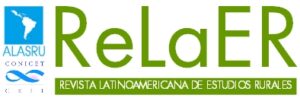The Centre for Rural Economy at Newcastle University has an opening for a PhD studentship to Research Farm Tenancies in the North East of England. Click here for more details
Author Archives: admin
The 86th Annual Meeting of the Rural Sociological Society
The 86th Annual Meeting of the Rural Sociological Society will be held in Madison, Wisconsin, USA at the Madison Concourse Hotel July 24-28, 2024. The meeting will explore the theme of Reconceptualizing Rurality: Toward a More Diverse and Inclusive Understanding. More information is available on the conference website.
7th ARSA International Conference
The Asian Rural Sociology Association will hold the 7th international conference on 7th to 9th September 2024, at Ryukoku University in Kyoto, Japan. The theme of the conference is Recasting Peasantries for a Sustainable Future in Rural Asia: Multiple Trajectories of Modernization. More information is available on the https://arsa2024.wordpress.com/
Members of the IRSA board: Ruth McAreavey
Ruth McAreavey is Professor of Sociology at Newcastle University. Her research focuses on rural social change and inequalities; migration, research ethics and methodologies. She has published extensively on sustainable rural development and on inequalities faced by migrants in the labour market and in other parts of everyday life. Ruth’s research has been funded by government departments and agencies as well as independent charitable trusts.
Ruth is an active member of various international research networks including the European Society for Rural Sociology (ESRS) and the European Sociological Association. She is an elected Fellow of the Academy of Social Sciences and co-editor-in-chief of Sociologia Ruralis. Ruth is proactive in engaging with third sector organisations and with government departments. She is a Trustee of Plunkett UK.
Members of the IRSA board: Sergio Schneider

Sergio Schneider is Full Professor of Sociology of Rural Development and Food Studies at the Federal University of Rio Grande do Sul (UFRGS), Porto Alegre, Brazil, where he teaches and research at the Graduate Program of Sociology (PPGS) and Rural Development (PGDR).
Continue readingPositions available at Penn State University
ESA RN38 Mid-term conference: Sustainability, Places and Social Justice: Enabling Well-being in Rural Areas across Europe
The research network “Space, Society and Rurality” invites to its mid-term conference on 15 and 16 February 2024, at the Public University of Navarra, in Pamplona, Spain. Paper contributions are welcomed, with abstract submission deadline 15th December 2023. Look at the conference website for more information.
New issue of ReLaER
Revista Latinoamericana de Estudios Rurales (ReLaER) is an academic journal published biannually since 2016 by the Latin American Association of Rural Sociology (ALASRU) in co-edition with the Center for Labor Studies and Research of the National Council of Scientific and Technical Research of Argentina (CEIL-CONICET). Its purpose is to disseminate knowledge related to rural problems in Latin America; receives original articles in Spanish and Portuguese that predominantly address issues in the field of rural sociology related to social, economic, environmental, and political dimensions of agriculture and the rural milieu of the continent.
AFRN Conference abstract submission deadline extended
The abstract submission deadline for the 2023 Agri-Food Research Network Conference has been extended to 30 June 2023. See https://afrn.co/ for more information.
Call for Papers: Australasian Agri-Food Research Network Conference 2023
The Agri-Food Research Network invites researchers to submit their papers for consideration for the AGRN conference of 2023. The conference is hosted by the University of Tasmania and is scheduled for December 4-7 2023. The deadline for session proposals and abstracts is June 1st 2023. Please see https://afrn.co/agrifood-conference/afrn-conference-2023/call-for-papers-afrn-conference-2023/ for further details.









